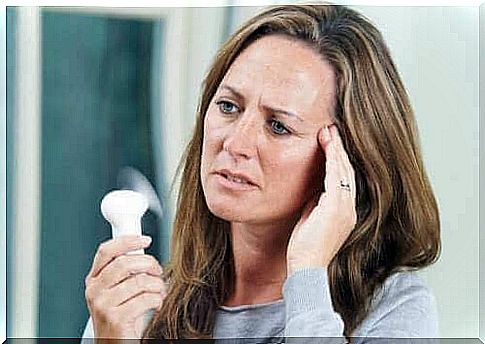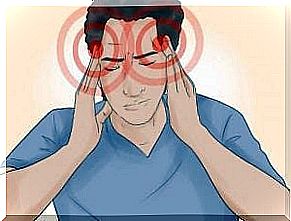Early Menopause Increases The Risk Of Dementia

The risk of dementia has always been associated with degenerative or infectious diseases, as well as a trauma to the head. These days, however, an early menopause is also included in this group.
Many women dread menopause. This is not only because it is the end of their reproductive life, but because of the consequences this phase entails, such as the risk of osteoporosis.
This stage usually begins when you are around 45 years old. In some cases, however, it may start earlier.
Early menopause
It is an early menopause when it begins before one has turned 40. It can be caused by various factors, such as:
- Family history: If someone in your family has experienced an early menopause, the chances of it happening to you are also much greater.
- Cancer treatment: Going through chemotherapy (chemotherapy) to treat cancer, especially in the pelvic area, can cause early menopause.
- Autoimmune disorders: Thyroid disorders are associated with an early menopause.
When menopause begins, the body’s estrogen levels drop. This causes symptoms related to this stage, such as bone problems. However, one can also suffer from high blood pressure and other problems, which we have talked about in another article.

The risk of dementia in menopause
So, what is the relationship between early menopause and the risk of dementia?
Several studies suggest that the risk lies behind reduced estrogen levels. Because of this, the brain’s estrogen receptors disappear, and the risk of dementia increases.
Decreased estrogen levels are responsible for all the symptoms associated with menopause and the underlying problems. Because of this, health experts are studying ways to prevent this.
Taking estrogen
Researchers who are interested in this problem that causes women to enter an early menopause, believe that taking estrogen may prove useful. This is better known as “hormone therapy”.
This type of therapy is used not only to prevent the unpleasant symptoms associated with this stage of life, such as hot flashes, night sweats, and dryness of the vagina, but also to reduce the risk of dementia. Estrogen is usually taken in the form of birth control pills, which improves the symptoms and prevents the risk of dementia.
However, your doctor should be the one to decide if this is the best treatment for you and how to use it.

The risk of dementia
The best thing about starting hormone therapy for an early menopause is that it can also reduce the risk of a disease that is difficult to diagnose early enough to stop it: Dementia.
In fact, dementia is a disease that is constantly evolving. This means that it is a degenerative problem that will try to go its own way. However, proper treatment can help slow down the process, thereby improving the patient’s quality of life.
The vulnerable brain
As you have seen, the brain is incredibly vulnerable. Menopause, a condition that most people believe only causes hot flashes and emotional changes, actually involves many more changes.
Your body and health change as you enter menopause. Your legs get weaker, and you also have a greater chance of getting dementia, especially if menopause begins early. Therefore, it is important that you go to a doctor you trust so that you can talk to them about the possibility of hormone therapy. It can mark a before and after in this new phase.
Conclusion
We hope this article helped you understand that there are ways to prevent this degenerative disease. Although early menopause does not always lead to dementia, the risk increases.









